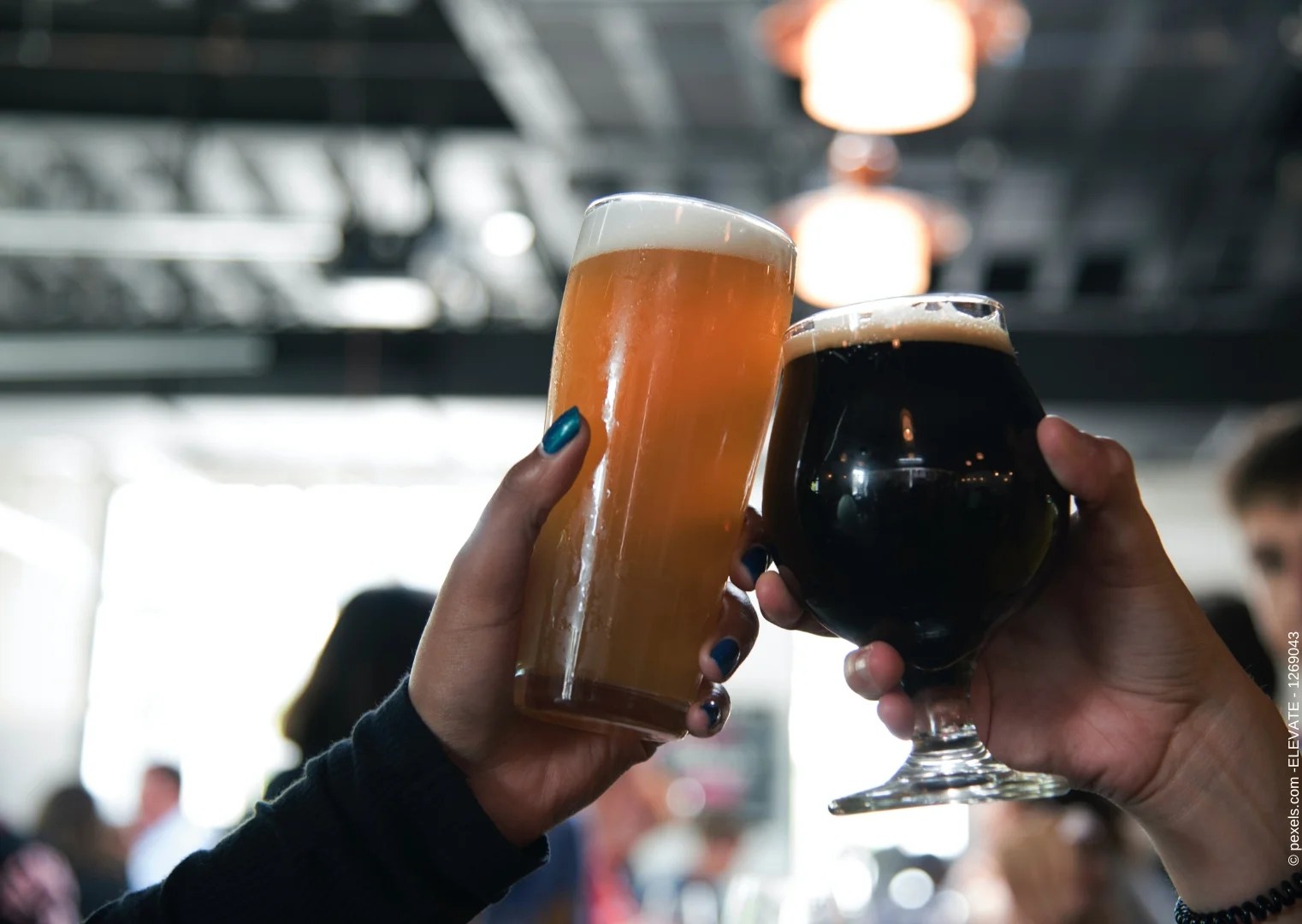German Beer Culture

Germany’s Beer: A rich Tradition Brewed Over Centuries.
Germany is justly celebrated for its contributions to the world of beer. The country’s beer is renowned worldwide for its exceptional quality, diverse range of styles, and iconic traditions. In this exploration of Germany’s beer culture, we delve into the origins and history of beer brewing in Germany, the different types of beer that have made their mark, major beer festivals such as Oktoberfest, the melodious drinking songs that accompany these festivities, and the enduring significance of the beer purity law.
Origins and History of Brewing in Germany
The German people’s love affair with beer can be traced back through the mists of time. The origins of brewing in Germany can be dated to as far back as 800 BC when Germanic tribes began experimenting with fermenting barley and other grains. These early brews laid the foundation for a tradition that would flourish over the centuries.
By the time of the Holy Roman Empire, brewing had become a vital part of German society. This was often the work of local monasteries, which played a crucial role in refining brewing techniques and creating new styles of beer. It was in these monastic centres of learning and experimentation that various ales, and other beer types that we associate with modern beer brands were first developed.
The Different Types of German Beer
One of the defining characteristics of Germany’s beer is the diversity of its beer styles. From light and crisp lagers to rich and malty bocks, German breweries offer a wide array of options for beer enthusiasts.
Lager, one of the most popular styles, is characterized by its clean, refreshing taste and crisp finish. It’s often enjoyed as a thirst-quencher, particularly in the warm summer months. This style, with its long, cold fermentation process and bottom-fermenting yeast, has become a symbol of German precision and craftsmanship.
Weissbier, or wheat beer, is another beloved style most commonly associated with the southern state of Bavaria. It’s distinguished by its hazy appearance and fruity, spicy notes. The combination of malted wheat and top-fermenting yeast gives it a unique flavor profile that’s both refreshing and complex.
Bock, a stronger and maltier beer, has a rich history in Germany. It was originally brewed by monks to sustain them during fasting periods such as Lent. Even today, Lent is when we celebrate our great springtime “Starkbier” (strong beer) festivals. Bock beers come in various substyles, such as Maibock, Doppelbock, and Eisbock, each with its own unique characteristics.
The Greatest Beer Festival: Oktoberfest
When one thinks of Germany’s world of beer, the grandeur of Oktoberfest in Munich immediately comes to mind. This world-famous festival is a celebration of all things German, particularly its beer.
Oktoberfest, held annually in the city of Munich, Bavaria, is the largest beer festival in the world. It dates back to 1810 when it began as a celebration of the Bavarian Crown Prince Ludwig’s marriage to Princess Therese of Saxe-Hildburghausen. Over the years, it has evolved into a 16-day extravaganza of drinking and eating and song that draws millions of visitors from around the globe.
Oktoberfest is when Munich’s breweries unveil their special Oktoberfest “Märzen” beers, characterized by their slightly stronger alcohol content and balanced flavor.
In addition to beer, Oktoberfest offers an array of traditional German foods like sausages, pretzels, and schnitzels, making it a culinary delight. The festival’s vibrant atmosphere is further enhanced by live music, colorful parades, and traditional Bavarian clothing.
The Joy of Drinking Songs
No celebration of Germany’s love affair with beer would be complete without mentioning the jovial drinking songs that accompany the clinking of “Maßkrüge”, steins and mugs. These songs are an integral part of the communal experience that is traditional to German drinking culture.
Drinking songs, known as “Trinklieder” in German, have a long history and are often sung in a group, fostering a sense of togetherness and camaraderie. These songs come in a variety of forms, from traditional folk tunes to rowdy drinking anthems. They celebrate the joys of friendship, love, and, of course, beer.
One of the most famous drinking songs is “Ein Prosit,” which is commonly sung at Oktoberfest and other beer festivals. The lyrics are simple but effective:
Ein Prosit, ein Prosit, der Gemütlichkeit! Ein Prosit, ein Prosit, der Gemütlichkeit!
This cheerful chant is an invitation to raise your glass and toast to “the coziness” of the moment, a sentiment that captures the heart of German beer culture. An exact translation is difficult, but an approximate translation would be something like, “A toast to the good things in life!”
The “Reinheitsgebot“ Beer Purity Law
At the heart of German brewing tradition lies the Reinheitsgebot, also known as the beer purity law. This historic regulation, which originated in 15th century Munich, has played a crucial role in shaping the quality and character of German beer.
The Reinheitsgebot was extended from Munich to all of Bavaria in 1516, and its primary purpose was to maintain the purity and quality of beer. The law stipulated that beer could only be brewed with three ingredients: water, malted barley, and hops. At the time, the significance of yeast in fermentation was not yet understood, so it was not included in the original law.
The purity law was later adopted throughout Germany, becoming a symbol of the nation’s commitment to producing high-quality beer. Over the centuries, it has evolved and expanded to include yeast as a permissible ingredient. Today, the modern interpretation of the Reinheitsgebot German Beer Purity Law, continues to govern beer production in Germany.
This law has had a profound influence on the German brewing tradition, emphasising simplicity and the use of natural ingredients. It ensures that German beer maintains its reputation for excellence, and is a testament to the country’s dedication to preserving its rich brewing heritage.
Breweries: the Heart of German Beer
Breweries are the beating heart of German beer culture, and the country boasts thousands of them, ranging from small family-owned operations to massive industrial facilities. These breweries uphold centuries-old traditions while also embracing modern innovations to produce some of the world’s finest beers.
Germany is home to a multitude of breweries, with the state of Bavaria alone hosting over 600. The city of Munich, in particular, is renowned for its breweries, some of which have been in operation for generations. These breweries are responsible for crafting the iconic Bavarian pale lager and wheat beers that have become synonymous with German beer.
The beer brewed in Germany is held to exacting standards, and each brewery takes great pride in the quality of its product. Brewers often apprentice for years to learn the craft, and many breweries have closely guarded recipes that have been handed down through generations.
Visiting a German brewery is an experience like no other. It provides a glimpse into the meticulous process of brewing and the dedication to preserving traditional techniques. Many breweries offer guided tours where visitors can see firsthand how their favorite German beers are produced, from the selection of ingredients to the fermentation and aging process.
German Beer Day.
Germany’s love for beer is so profound that it has its own special day of celebration, appropriately named “German Beer Day.” This annual event, observed on April 23rd, is a nationwide tribute to the country’s brewing heritage.
On German Beer Day, breweries across Germany open their doors to the public, inviting beer enthusiasts to learn about the brewing process and, of course, savor a glass or two of their finest brews. It’s a day when Germans come together to celebrate the history and the traditions of beer and brewing that have been passed down the generations.
In conclusion, Germany’s beer culture is a treasure trove of tradition, diversity, and excellence. From its ancient origins to the Reinheitsgebot, Oktoberfest, and the joyous drinking songs, Germany’s contribution to the world of beer is unparalleled. Breweries are the backbone of this culture, tirelessly crafting exceptional brews, and German Beer Day serves as a testament to the nation’s love for its brewing heritage.
With Germany’s rich history, unparalleled craftsmanship, and unwavering commitment to quality, it’s no wonder that German beer has earned its place as a global icon. So, whether you find yourself at a bustling beer hall in Munich or sipping a refreshing lager on a sunny day in Berlin, you can be sure that you’re partaking in a tradition that has been cherished for centuries … Prost!
